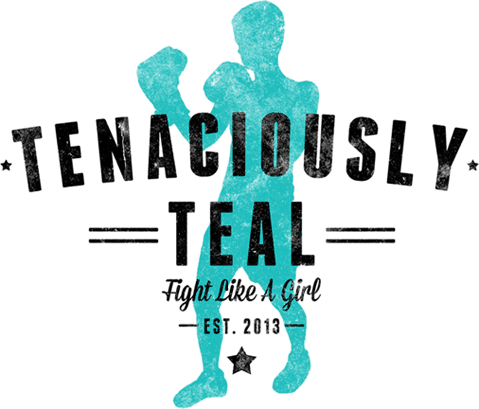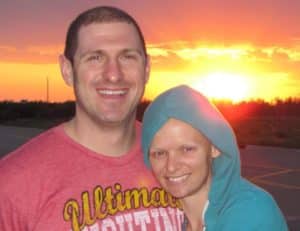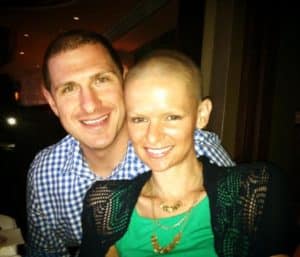
How to Support A Cancer Caregiver
Being a caregiver can be the greatest act of love and the hardest thing one ever has to do. There’s an endless number of things to deal with, such as doctor and treatment appointments, making meals, cleaning, coordinating services, providing daily care and medications–as well as giving emotional and spiritual support. All the while, the caregiver struggles with their own emotions, fears, or breaking heart– and in some cases, their job, other family members to care for and, lastly, their own needs.
When Tarah Warren, Tenaciously Teal founder, went through her fight with Ovarian Cancer, her husband, Benjamin, became her primary caregiver for the 16 months she underwent treatment. Benjamin also maintained his job during that time, even though he had to take off a great deal to care for Tarah.
Benjamin said they had both “great and not so great” experiences with people trying to help. “One group decided to do a food chain without asking us about what we could eat or could not eat. Unfortunately, a lot of people wanted to send us their “best culinary gifts”, many of which just did not sound good to Tarah since she was so sick.
He said a good example of great care was when his pastor’s wife cleaned their house while they were at a chemo treatment. “It felt amazing to go to chemo for eight hours and come home to a spotless, fresh house with the laundry folded on the table. That was HUGE!”
Others would call and ask if we need anything or offer to take her to chemo, sit with her and bring her home so Ben didn’t have to take off work. “One friend gave us a few hours of time in the evening so I could run errands and work out. Every little thing helped give her a better chance of winning her fight and helped me be my best.”
According to Benjamin and Tarah, one of the best things you can do is “show up”. Don’t be afraid that you might not know what to say. Sometimes just letting someone know you are thinking about them can do wonders for the soul. Furthermore if you want to help just ask the family what they need most.
Additional things that helped Benjamin as a caregiver were:
- Gift cards for meal delivery services so Tarah could choose a meal that sounded good to her.
- Offering rides to and from chemo treatments
- Visits at chemo treatments while Ben went to work
- Lawn Care and Home Maintenance
- People jumping in, consulting with family, and organizing help with tasks
- Cleaning supplies, healthy snacks, grocery cards
- Friends who didn’t say “Let me know what I can do”, but instead said “I can do this… or I am good at this, can I help you with that?”
Benjamin and Tarah were also blessed with financial assistance, one friend even bought a plane ticket for Tarah’s family to come visit from Oregon for her first round of chemo. “You can’t put a price on that kind of thoughtfulness and generosity”.
Fortunately, Ben was not afraid to ask for what he and Tarah needed. As a child, Ben lost his father to malignant melanoma that started with a mole on his back. He didn’t think a mole was anything to worry about until it was too late. He died when Ben was four and Ben’s grandfather died from cancer when he was 28. Benjamin witnessed what caregivers have to do to care for their loved ones.
“You learn an array of different things as a caregiver — and I’ve learned to be 110% non-apologetic about asking for the help we needed for her to get better. Caregivers can’t give in to their own insecurities and be afraid to ask for the help they need, but if you don’t take care of yourself, you can’t care for your loved one”.




No Comments